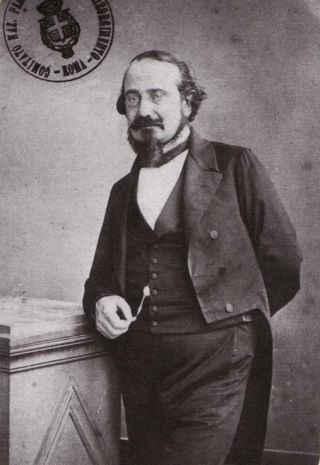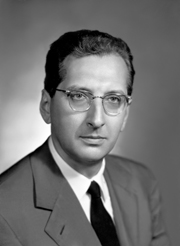Pio Colonnello (born February 12, 1951, in Benevento) is an Italian philosopher and university professor.
Pio Colonnello has three degrees with honours in philosophy, in law and in humanities. In the academic year 1973/74 he won a scholarship at the "Istituto Italiano per gli Studi Storici", founded by Benedetto Croce, in Naples. Already a teacher in the Secondary School, from 1980 he has worked as researcher with tenure at the Department of Philosophy "A. Aliotta" of the University of Naples "Federico II". From 2001, he works as Professor of Theoretical Philosophy at the Faculty of Humanities of Calabria University.
He has collaborated with others on some philosophical reviews: Kant Studien, Criterio, Filosofia Oggi, Nord e Sud, Sapienza, Choros, Studi Kantiani, Zeitschrift für philosophische Forschung, The Journal of Value Inquiry (of which he is also Consulting Editor). He is member of the Scientific Committee of important philosophical reviews.
He is visiting professor at the Universidad Autónoma de Mèxico, at the Universidad Nacional Autónoma de México (Ciudad de México) and at the California State University, Northridge. He has organized many national and international Congresses.
He twice obtained the "Premio della Cultura" of the Ministers' Council Presidency. In the month of November 2007, he obtained the International Prize of Culture "Salvatore Valitutti".
Pio Colonnello has privileged some themes of research: the investigation on authors and themes included between transcendental criticism and phenomenological thought (by Kant to Husserl); the reflections on the fundamentals problems of philosophy of existence and of contemporary hermeneutics (Heidegger, Jaspers, Ricœur, Pareyson, Arendt); the analysis of some positions of the contemporary historicism between Europe and Latin America (Croce, Ortega y Gasset, Gaos, Ímaz, Nicol, Düssel). His proposal is to verify the interaction, in a historical and critical view, of the fundamental themes of Kantism, phenomenology and philosophy of existence.

Nicola Abbagnano was an Italian existential philosopher.

Francesco de Sanctis was an Italian literary critic, scholar and politician, leading critic and historian of Italian language and literature during the 19th century.

Emanuele Severino was an Italian philosopher.
José Gaos was a Spanish philosopher who obtained political asylum in Mexico during the Spanish Civil War and became one of the most important Mexican philosophers of the 20th century. He was a member of the Madrid School.
Ludovico Geymonat was an Italian mathematician, philosopher and historian of science. As a philosopher, he mainly dealt with philosophy of science, epistemology and Marxist philosophy, in which he gave an original turn to dialectical materialism.

Giovanni Piana was an Italian philosopher. He taught theoretical philosophy at the University of Milan from 1970 to 1999.

Remo Bodei was an Italian philosopher. He was a professor of the history of philosophy at the UCLA University, Los Angeles California, and also taught at the University of Pisa and Scuola Normale Superiore di Pisa. Bodei was born in Cagliari. His initial interests were in classical German philosophy, and the Weimar Classicism period (1770–1830). He subsequently penned over 200 papers on utopian thinkers of the eighteenth and nineteenth centuries, and contemporary political thought. He died in Pisa, aged 81.

Luigi Pareysón was an Italian philosopher, best known for challenging the positivist and idealist aesthetics of Benedetto Croce in his 1954 monograph, Estetica. Teoria della formatività, which builds on the hermeneutics of the Austrian philosopher Ludwig Wittgenstein.
Paolo Flores d'Arcais is an Italian philosopher and journalist, editor of the magazine MicroMega. He contributes to Il Fatto Quotidiano, El País, Frankfurter Allgemeine Zeitung and Gazeta Wyborcza.

Luciano De Crescenzo was an Italian writer, film actor, director and engineer.

Domenico Losurdo was an Italian historian, essayist, Marxist philosopher, and communist politician.

Cesare Brandi was an art critic and historian, a specialist in conservation-restoration theory who was born in Siena and died in Vignano.

Romano Amerio was a Swiss-Italian theologian and a late critic of post-Conciliar evolutions in liturgy and ecclesiology. His magnum opus is Iota Unum. It is a work dedicated to the study of the ruptures in Church teaching and tradition following the Second Vatican Council.

Bertrando Spaventa was a leading Italian philosopher of the 19th century whose ideas had an important influence on the changes that took place during the unification of Italy and on philosophical thought in the 20th century.

Vito Fazio-Allmayer was an Italian philosopher, pedagogist and university teacher.
Giorgio Fano was an Italian philosopher and linguist. He belonged to the school of Italian neo-idealist thinkers, among a group of artists and writers who made Trieste of the early Twentieth Century a notable center of intellectual activity. Fano read and interpreted the work of Benedetto Croce and Giovanni Gentile from an original point of view. In particular, he recognized the importance of the natural sciences and mathematics, which in his system are not pseudo-concepts. He also stressed the major importance of the simplest and most basic aspects of the life of mind, inspired by reflections of Gianbattista Vico.
Franco Volpi, was a philosopher, historian of philosophy and a professor at Padua University, who wrote regularly to the Italian newspaper La Repubblica. Volpi was an expert in German philosophy, in particular Martin Heidegger and Arthur Schopenhauer. He investigated the relationship between nihilism and the nothing, and between philosophy and current psychology. In one of his works, he wrote that "real philosophical questions have a history but have no answer". For him, nihilism undermines truth, weakens religion and dissolves dogmatism.
Giuseppe Maria Sciacca was an Italian philosopher and academic. A student and assistant of Antonio Renda, Sciacca's work focused on Kantianism.

Cesare Luporini was an Italian philosopher, historian of philosophy and politician.

Rosario Assunto was an Italian philosopher, he was an Art theorist and landscape aesthetician.